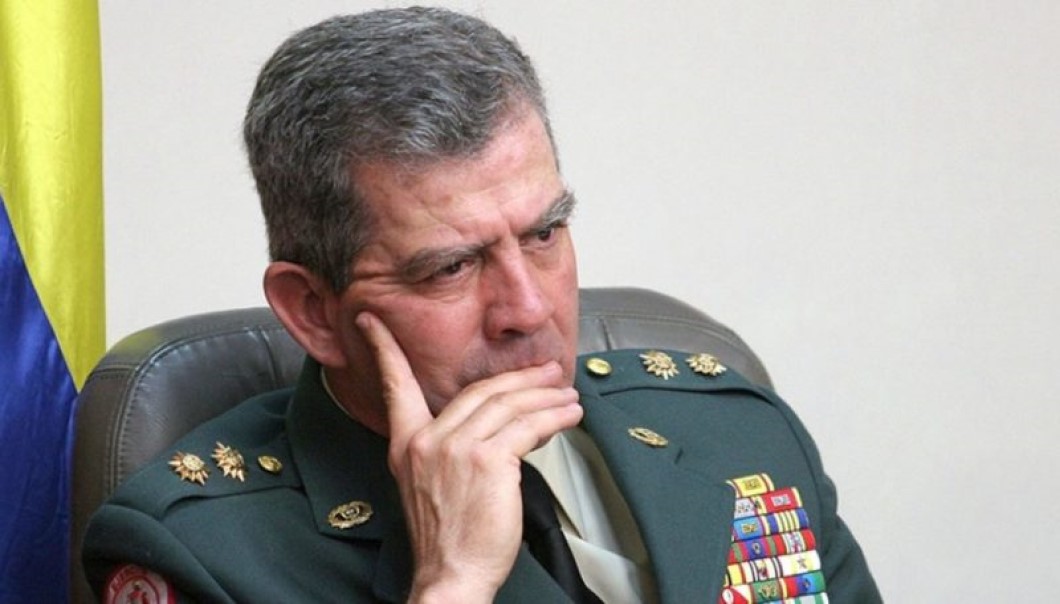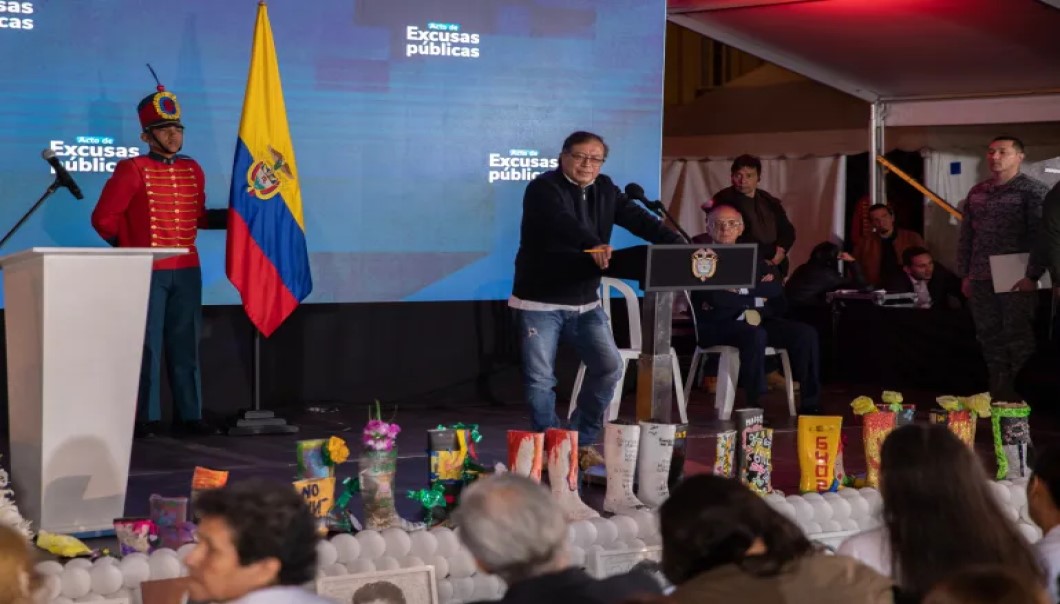The Colombian military has issued an apology to the families of murdered civilians following an inquiry that revealed that an estimated 6,402 civilians were murdered by the armed forces between 2002 and 2008. Those killed were passed off as rebels in a practice that is often referred to as “false positives.”
The inquiry claims that many of the victims were men from poor neighborhoods in and around Colombia’s capital city of Bogotá who were lured to rural areas of the country with promises of employment; however, when they arrived, they were quickly executed by security forces, dressed in guerilla fatigues, and had weapons placed in their hands.
The killings were committed to raise the number of combat kills in the conflict between the Colombian government and the Marxist paramilitary group known as the Revolutionary Armed Forces of Colombia (FARC).

The Special Jurisdiction for Peace (JEP), a transitional court system that played a massive role in facilitating the peace deal between the FARC and the government in 2016, has led the investigation into the false positives, resulting in over 700 members of the Colombian military giving evidence, while more than 3,500 members of the military have been put under investigation for their association with the crimes.
Military officials have testified that government policies and pressure from superior officers motivated the killings, rewarding soldiers with a high kill count with vacation days, promotions, and bonuses following a government initiative in 2016. JEP has indicted three generals, most notably the retired general and commander of the Colombian army, Mario Montoya, who has been accused of being responsible for at least 130 killings. Officials further testified that Montoya ordered soldiers to prioritize kills over captures of rebels.
The Ceremony Received a Mixed Reaction:
Colombia’s Minister of Defense, Iván Velásquez, issued the apology in Bogotá’s main square alongside Colombia’s army head, Luis Ospina Gutierrez, and the Colombian President, Gustavo Petro, who arrived hours late, calling the killings “shameful” and adding that “they were not rebels.”
“We’re standing here before the victims, before Colombian society, before the international community, to say sorry,” Mr. Velásquez told onlookers.
President Petro, the country’s first leftist president and a former member of the rebel group known as M-19, also expressed his apologies for those killed by government forces, comparing the atrocities to genocide.

The families of the 19 men who were killed by government forces took the stage as well, announcing the names of their murdered loved ones, however, some were left dissatisfied with the apology. Some expressed thoughts that the apology should have been made long ago, while others wished that other figures, such as Colombia’s former President, Álvaro Uribe, and Uribe’s defense minister, Juan Manuel Santos, should have issued the apology as many of those killed were killed under his presidency.
“It should have been Juan Manuel Santos who should have been present to show his face and ask us for forgiveness,” Florinda Hernández, the mother of one of the victims by the name of Elkin, who was killed in 2008, told the press.
Some Have Refused to Apologize:
Colombia’s courts have ordered those who played key roles in the killings to formally apologize for their actions; some, however, have refused to apologize for their roles, most notably the former president, Ivan Duque, according to Pilar Castillo, the director of Asociación Minga, a group that offers legal representation to victims of extrajudicial killings.
“In effect, the Duque administration did not have the political will to comply with the rulings because it would have meant acknowledging that the extrajudicial killings were a criminal practice within the military forces,” Castillo said.
Castillo claims that the Duque administration is not alone in the unlawful killings, pointing towards the administrations of President Uribe and Juan Manuel Santos who both denied that such killings were a widespread issue within the military.


